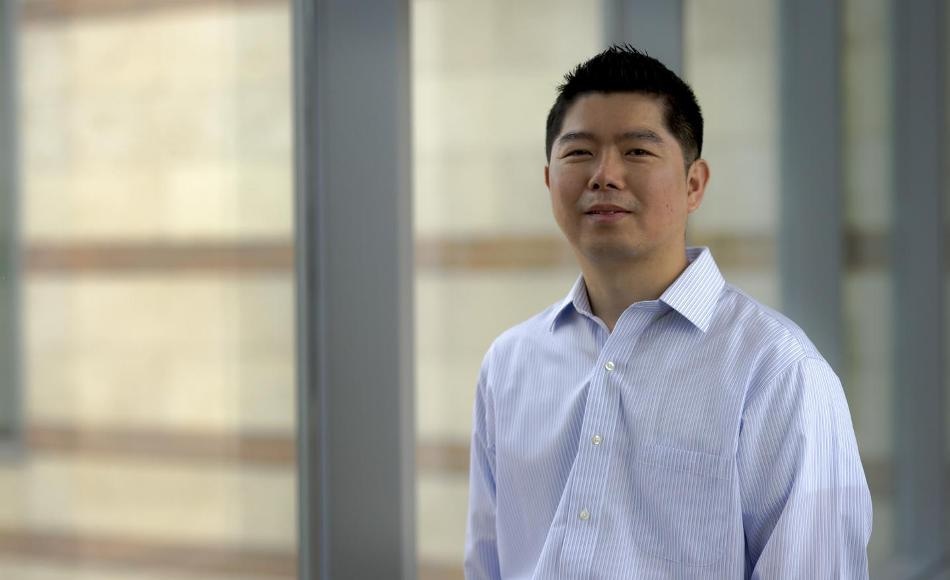Aug 30 2016
The advent of 3-D printing has led to many innovations in manufacturing, assembly and production.
 Kyungsuk Yum, a UTA assistant professor in the Materials Science and Engineering Department, has received a $100,000 National Science Foundation grant to develop bioinks that can be used to print 3-D tissue and organs. (CREDIT: UT Arlington)
Kyungsuk Yum, a UTA assistant professor in the Materials Science and Engineering Department, has received a $100,000 National Science Foundation grant to develop bioinks that can be used to print 3-D tissue and organs. (CREDIT: UT Arlington)
Nearly anything – from machine parts to food – can be printed on demand. Researchers now are exploring the technology to print human tissues and organs. However, the lack of good inks for 3-D bioprinting remains a barrier.
Kyungsuk Yum, an assistant professor in the Materials Science and Engineering Department of UTA’s College of Engineering, has earned a $100,000 grant from the National Science Foundation to develop nanocomposite hydrogel bioinks that could be used for that purpose.
Inks for bioprinting must be 3-D printable and biocompatible. They must form to their intended shape and be used safely with living cells. Current bioinks are mostly made from a polymer solution that encapsulates cells, a material commonly used in tissue engineering. However, because these bioinks are in a liquid state, it is difficult to print 3-D tissue structures that are self-supporting and high resolution because the bioinks spread and their mechanical properties are weak.
“Ideally, bioinks should be liquid-like during the printing process, but solid-like after. We are developing a nanocomposite bioink that incorporates carbon nanotubes,” Yum said. “Our bioink will change its mechanical properties and become liquid-like when pressure is applied for printing, but revert to a solid-like material when that pressure is released after printing.”
“Organs are very complex structures. If we’re successful, we’ll be able to print more complex, 3D tissue structures with higher resolution that are more similar to those within our body. From there, we can work to develop a new technology that will eventually lead to printing physiologically relevant 3-D tissues and ultimately working organs.”
Stathis Meletis, chair of UTA’s Materials Science and Engineering Department, says that Yum’s grant underscores the University’s emphasis on health and the human condition contained within the Strategic Plan 2020: Bold Solutions | Global Impact.
“Dr. Yum’s transformative research in materials science and engineering will have a tremendous effect in the areas of bioengineering and biology,” Meletis said. “The broad application of his research can impact the future of the field, and it could change lives. UTA’s emphasis on innovation is already paying dividends.”
Yum joined UTA in 2013 following postdoctoral research appointments at the University of California, Berkeley, and the Massachusetts Institute of Technology. He is also a faculty affiliate of The University of Texas at Dallas and UT Southwestern Medical Center in Dallas.
He recently was awarded a grant from the Texas Medical Research Collaborative to develop an injectable, near-infrared optical biosensor nanotube that would read a person’s blood glucose constantly and an optical glucose scanner that can access the data collected by nanotube, eliminating the need for diabetics to prick a finger to monitor blood-glucose levels.
The Yum Research Group at UTA focuses on integrating man-made and nature's micro- and nano-scale materials, processes and systems for engineering innovation. The lab works on research projects at the intersection of physical sciences and engineering, and life sciences and biomedicine at that micro- and nano-scale.
— Writte1n by Jeremy Agor
Source: http://www.uta.edu/